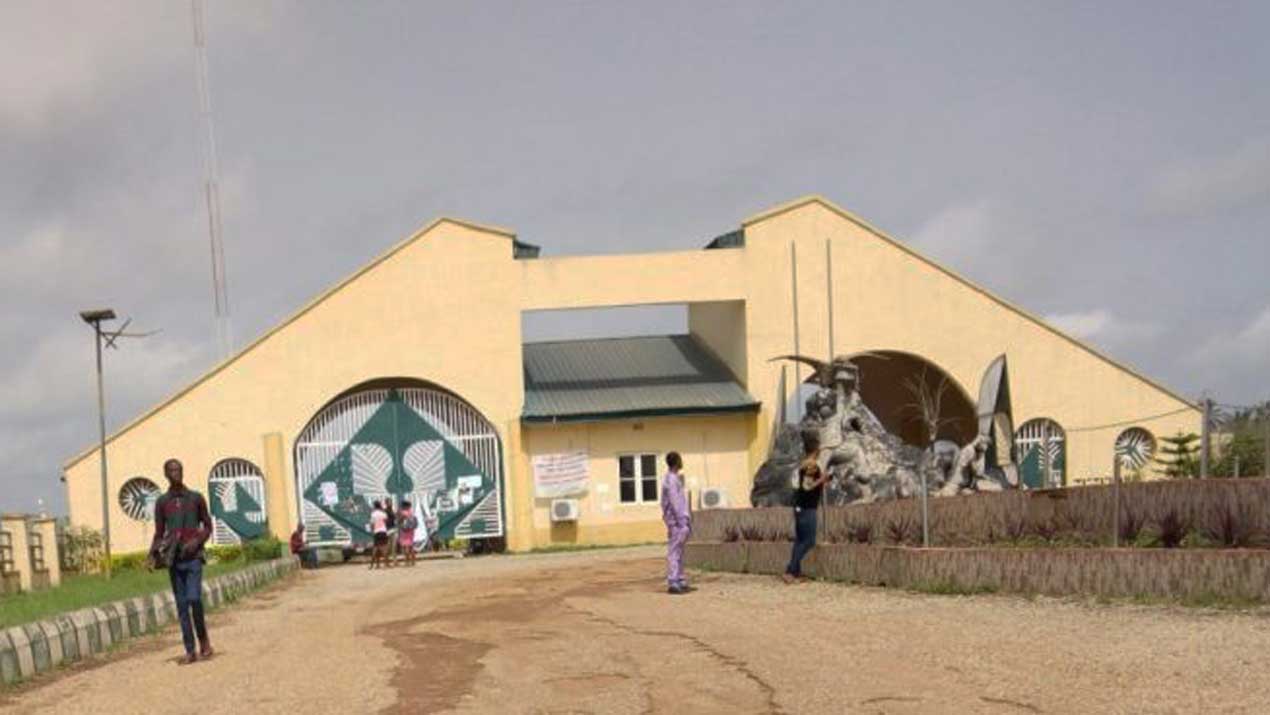
Diamond and gold have no hidden place, they are globally recognised, sought after and celebrated. This is the success story of the nascent and fast growing Federal University Oye Ekiti (FUOYE), established barely 10 years ago along with eight other universities by the administration of former President Goodluck Jonathan. Today, it has distinguished itself as first among equals and has beaten some older universities as a trail-blazer in so many academic endeavours.
It is delightful and inspiring that relatively young FUOYE under the leadership of Prof. Abayomi Sunday Fasina has a basketful of relatively uncommon records, some of which have launched themselves into the national lime-light and have engraved themselves in the consciousness of opinion leaders and leadership of regulatory and supervisory institutions in the country.
The latest in the trail-blazing record of FUOYE was made public by the ever credible and never biased authority whose verdict cannot be faulted, the Registrar of Joint Admission and Matriculation Board, Prof. Ishaq Oloyede who revealed recently that FUOYE is fifth most sought after university by admission seekers, among the 176 universities in Nigeria!
Prof. Oloyede in this testimony, unknown to him has unconsciously affirmed an earlier and similar verdict by a Visitation Team of the National University Commission led by Prof. G.E. Gyong, which, moved by the astronomical and giant stride FUOYE has recorded, remarked that: “Truly as your Public Relations Officer has said, this is Africa’s fastest growing university. I observed the speed with which facilities are springing up here and there in your dual campuses…”
Of course the logical follow-up question is what is unique about the university that makes it exceptionally attractive to admission seekers? Indeed the answer is found in the quality leadership of the Vice Chancellor, Prof. Fasina and his transformation policies and projects which cut across all sectors and are visible all over the campuses of the university and in the lives of all members of staff.
It is indeed a record that FUOYE with over 90 departments and 12 faculties, has virtually all courses and programmes admission seekers would be interested in, be it through JAMB or other credible programmes licensed by NUC. In another few months from now, it may not be surprising if FUOYE moves further on the admission seeking scale, to the fourth or third position as it has concluded all necessary modalities for the take off the Faculty of Medicine next academic session. To confirm the veracity of this move and to further demonstrate the determination of the university to open the faculty next session, the Vice Chancellor has appointed a pioneer Provost for the College of Medicine, expected to use Federal Medical Centre, Ido Osi as its temporary College of Medicine while the building of the permanent site continues at the parcel of land donated by Itaji, Itapa and Oye Ekiti communities. Faculty of Basic Medical Science which is already in operation, is expected to be the fore-runner and fore-bearer of the Medicine Faculty. By this FUOYE will not only be the first and the only one among its peers, it would have again beaten many universities to it!
Fully conscious of the social implications of the astronomical growth in the university’s students’ population now put at about 30,000, Fasina has taken a proactive measure to address the logical increase in the demand for hostel facilities and has signed Memorandum of Understanding with private developers who have swung into action and are expected to deliver about 26,000 bed-spaces within the shortest time to complement those in the two campuses. The strategic importance of the provision of hostel facilities within and around the campuses cannot be over-emphasised as it would ensure the safety and security of students when living in the same hostel community than living individually alone as off-campus students. It is also a proactive way of preventing protest and rioting that may break out due to lack of affordable accommodation. The strategic implication of the above and its effect on admission seekers cannot be over-emphasised because this is the kind of information admission seekers are curious to know before settling down for any institution.
For countries, we talk about conducive investment climate, the most important of which are the human element and the availability of peace and security, infrastructure alone cannot constitute investible climate. It is the same thing for the academic community, structures cannot impact learning on their own, it is only the human elements that can do that, in addition to ensuring a crisis-free environment and this again depends largely on how well mobised, the workforce is.
It is a credit to Fasina’s administration that since its emergence, the workforce has been singled out as the centre of all its decisions and policies which in turn has made them bought into the administration, as critical stakeholders, protecting and projecting the administration. Some of these human-centred decisions included, payment of hazard allowance which had been in years of arrears, compensations for essential workers, especially health workers who worked during COVID-19 inspired long holidays and during strikes, payment of responsibility allowance and the arrears to deserving members of staff, elevation of 20 deserving lecturers to the rank of professors and associate professors respectively, 50 percent reduction in the tuition payable by any staff running approved academic programme in the university and granting permission for qualified non-academic staff members who intend to switch over to academic.
The university under the leadership of Fasina has in the last one year successfully designed a new and unique concept of part-time studies, that no applicant could resist and which has further made it highly attractive and could further increase its JAMB admission rating. This part-time programme is completely novel, standard, noble, and completely ensures that the status of beneficiary-students, duration period for completion of programme are the same in all ramifications with regular students, including right to participate in the National Youths Service scheme. The advantages of this programme which is being coordinated by the newly established Institute of Part-time Studies, to the university, applicants and JAMB, is enormous. For instance it helps to indirectly increase the university’s student’s enrolment, boost its IGR just as it helps JAMB to mop up excess applicants who are qualified for admission but denied admission due to space’s constraint through the ‘regular’ admission process.
It is therefore no doubt that FUOYE made JAMB’s admission merit-list and is now the fifth admission destination for applicants.
Fanoro, a journalist, is a senior information officer at FUOYE.






